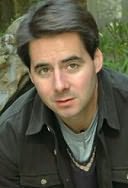- Shopping Bag ( 0 items )
From Barnes & Noble
The Barnes & Noble ReviewWhen President Kennedy conceived of the Peace Corps, he probably didn't imagine that it would give birth to a body of such poignant and powerful travel literature. Peter Hessler's River Town is a delightful addition to the pantheon of Peace Corps literature that recounts the trials and triumphs of "the toughest job you'll ever love."
The erudite Hessler volunteered to teach English literature at a teacher's college in Fuling, China, a small city -- by Chinese standards -- of 250,000 along the Yangtze River. Fuling wasn't renowned for anything in particular, but the city's fate was soon to change as the Chinese government unrolled its highly controversial Three Gorges river dam project. Hessler beautifully depicts the rhythms and sounds of a sleepy city on the cusp of great transition. He alternates descriptions of his daily adventures in Fuling with character studies of its notable, colorful, and sometimes wacky residents. He excels in bringing Fuling to life and sharing with the reader its unique qualities and complexities.
But it's in the classroom that Hessler finds writer's gold. His wry and warm descriptions of his students and their stories are rich and real, and make for excellent reading. The tales include Hessler's role in aiding an individualistic student's quest for government-suppressed information and advising a naïve graduate on the trappings of men and life in the big city. There are also tense sessions with Hessler's fiercely patriotic, party-line-toeing Chinese-language tutor, whose daily debates and language lessons he describes as "opium wars."
By far the most brilliant aspect of River Town is the way in which Hessler uses his students' own words -- from their essays to retellings of the plays they put on in class -- to provide insight into the experiences of a new generation of Chinese people. His students' perspectives on communism, democracy, America, civil liberties, and the great protagonists of English literature are simultaneously earnest and priceless, and Hessler's clever use of them to enrich his own narrative is the mark of a great storyteller.
Hessler also travels extensively throughout some of China's far-flung, lesser-known regions. His encounters on boats and trains provide another look at the issues facing China at the end of the millennium: its struggle for identity, its tense relationship with itself and other countries, and the basic human struggles of its massive population.
While each Peace Corps experience brings with it a host of unique and compelling circumstances, Hessler's two years in Fuling coincided with several especially important moments in modern Chinese history. Among them were the death of Deng Xiaoping and Britain's transfer of Hong Kong back to Chinese control, both in 1997. These events serve as the context within which Hessler explores and explains China. By his own admission, he was only able to scratch the surface of this multifaceted, intricate, and deeply complicated country during his two years of Peace Corps service. But readers doubtless will be moved and enlightened by Hessler's stories of life in China. His thoughtful and well-written account will enrich and educate, as well as incite a yearning within readers for more information about this incredible land. (Emily Burg)
Emily Burg is a New York-based freelancer.





Overview
A New York Times Notable Book
Winner of the Kiriyama Book Prize
In the heart of China's Sichuan province, amid the terraced hills of the Yangtze River valley, lies the remote town of Fuling. Like many other small cities in this ever-evolving country, Fuling is heading down a new path of change and growth, which came into remarkably sharp focus when Peter Hessler arrived as a Peace Corps volunteer, marking the first time in more than half a ...